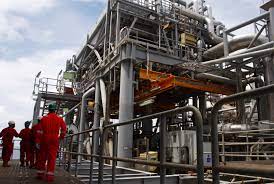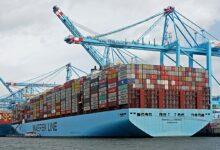
10 Factors Affecting Industrialization in Nigeria
Industrialization refers to the process of economic development in which a country experiences a shift from an agrarian economy to one that is dominated by industry and manufacturing. This process started in Nigeria during the colonial period when the British government created some industries such as cocoa production, palm oil, and as a way to extract resources. However, significant industrial growth was not in view until after Nigeria gained independence in 1960.Factors Affecting Industrialization in Nigeria
In more recent years, the Nigerian government has implemented some initiatives aimed at promoting industrialization. For example, the government has made laudable efforts to improve infrastructure by building new power plants and roads, and also implementing programs to encourage foreign investors into the country. However, the results so far have been mixed, as Nigeria still faces challenges in building a diversified and sustainable industrial economy, free of avarice and corruption.Information Guide Nigeria
👉 Relocate to Canada Today!
Live, Study and Work in Canada. No Payment is Required! Hurry Now click here to Apply >> Immigrate to CanadaRead Also: 10 Factors Affecting Weather in Nigeria
What Is Industrialization?
Industrialization refers to the process of economic development in which a country moves from an underdeveloped economy, dominated by agriculture to one that is filled by manufacturing and industrial practices. This process typically involves the growth of factories, and laboratories, the mechanization of production processes, and the increased use of technology and machines to solve the problems of mankind.
Characteristics Of Industrialization
Industrialization is characterized by several key features:
- Mechanization of production: This refers to the use of machines and technology to increase productivity and efficiency in the manufacturing process.
- Urbanization: Urbanization is the movement of people from rural areas to cities and more developed areas in search of better living conditions. This leads to the growth of urban areas and the decline of rural areas.
- Increase in the economic output of the nation: The expansion of manufacturing and the growth of the production sector leads to an increase in economic output and a major shift in the structure of the economy.
- Increased foreign trade: The increase in production and economic growth led to an increase in foreign trade. It also enhanced the integration of the country’s economy into the global economy.
Read Also: 10 Factors Affecting Rice Production in Nigeria
Benefits Of Industrialization
The benefits of industrialization include:
- Economic development and increased productivity: The use of sophisticated machines and technology in production led to increased efficiency. It also boosts economic growth and makes more goods and services available to consumers.
- Improved standard of living: Industrialization brought about better wages and preferable working conditions, which led to an overall improvement in the standard of living for employees.
- Creation of employment: The growth of industrialization led to the creation of jobs and new career opportunities, particularly in urban areas where factories and businesses were clustered
- Technological Innovations: Industrialization led to technological advancements in areas such as energy production, transportation, and communication, and these have had a long-lasting impact on society.
- Social mobility: Industrialization has resulted in more opportunities for people to improve their economic and social status, and also led to greater social mobility.Romantic Love Messages
Read Also: 10 Factors Affecting Women’s Participation in Politics in Nigeria
History Of Industrialization In Nigeria
Industrialization in Nigeria began in the late 19th century with the establishment of small-scale industries such as textile mills, brewing, cement, and soap factories. However, Nigeria’s economy did not experience rapid industrialization until the discovery of oil in the 1960s. We are yet to decide if this discovery was a blessing or a curse in disguise. What do I mean?
The oil industry became the sole driver of the Nigerian economy, as the various governments abandoned other productive areas of the economy that made Nigeria a wealthy Nation and focused only on the revenue from oil. Although the government invested heavily in infrastructure and other industries, such as steel and aluminum production, these efforts have not been matched by corresponding results as Nigeria’s industrial sector still struggled to achieve significant growth and development. One major reason for this is a lack of infrastructure and the presence of corruption among leaders.
👉 Relocate to Canada Today!
Live, Study and Work in Canada. No Payment is Required! Hurry Now click here to Apply >> Immigrate to CanadaIn recent years, Nigeria’s economy remains heavily dependent on oil and the country has struggled to diversify its economy and create jobs for its large and expanding population, although the Dangote refinery which is currently in progress seems like a ray of hope for the country.Good Morning Love Message
Read Also: 10 Factors Affecting Micro Teaching in Nigeria
Factors Affecting Industrialization In Nigeria
Several factors have affected the industrialization process in Nigeria, some of them include:
- Absence of infrastructure facilities: Inadequate infrastructure, ranging from poor road networks, and power failure to limited access to clean water and sanitation makes it extremely difficult for businesses to thrive and for industries to develop. Duties of a Counseling Psychologist
- Corrupt Practices: Corruption in Nigeria, has hindered the development of the industrial sector. It made it difficult for businesses to operate and discouraged foreign investment.JAMB Portal
- Excess Bureaucracy and red tape: Nigeria’s system is known to be slow and inefficient. This makes it difficult for businesses to navigate the sphere of the business terrain to obtain the necessary licenses to operate.
- Restricted access to finance: Many Nigerian businesses, especially SMEs (small and medium-sized enterprises), experience challenges in obtaining financing from banks and other financial institutions.
- Absence of skilled labor: Nigeria is plagued by a scarcity of skilled labor, hence it is quite difficult for its industries to develop and compete globally.
- An unhealthy dependence on the oil sector: The discovery of oil in Nigeria in the 1960s led to an unhealthy dependence on the oil sector, thereby neglecting other industries and causing an over-dependence on oil exports. This has made Nigeria’s economic growth lopsided
- Political instability: The lack of political stability in Nigeria has affected the country’s ability to attract foreign investment.
- Inadequate regulatory framework: The legal framework in Nigeria is not always conducive to business organizations and industries may struggle to comply with regulations and laws.
- Restricted access to new and emerging technology: Nigeria does not have full access to the latest technologies and this inhibits the development of the country’s industrial sector.NYSC Portal
- Environmental Pollution: The degradation and pollution of the environment have affected the industrial sector as industries struggle to operate in areas affected by pollution and other environmental challenges.
Read Also: 10 Factors that Influences Nationalist Activities in Nigeria
Conclusion
In conclusion, Nigeria’s history of industrialization dates back to the colonial era and it has made efforts to promote economic growth and diversify the economy through various policies. However, despite these efforts, the industrial sector in Nigeria still struggles to achieve significant growth due to a myriad of factors, including poor infrastructure, red tape, insufficient finance, etc. To get to its desired destination economically, Nigeria must tackle these challenges and enforce policies that promote infrastructural development and create a more conducive business environment so that foreign investment Investors can be drawn to the country and industrial development will be promoted.Duties of the Judicial Branch
Check JAMB RESULT
Check and Confirm: How much is Dollar to Naira






